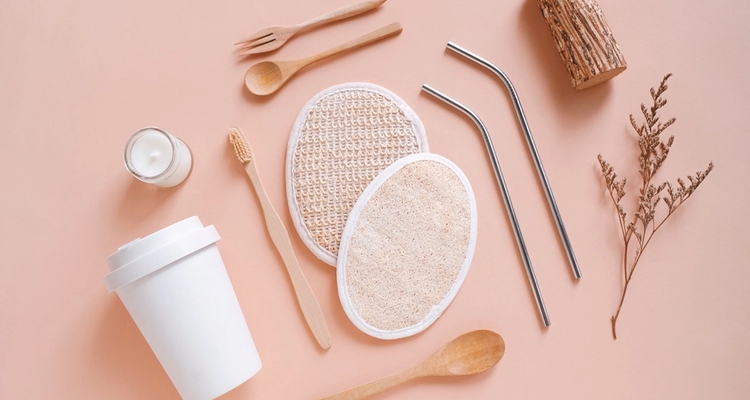
What Is A Circular Economy And Why Should We Aim For It?
By Annie Button
What if we could build an economy that eliminates waste and keeps resources in use? One that benefits the environment, society and businesses alike? This is the vision behind the circular economy: a regenerative system aimed at reducing waste and promoting the continual use of resources.
The idea of a circular economy is to design the things we use everyday in less wasteful ways. This way of thinking emphasises not just the creation of more sustainable products, but also the systems that ensure their reuse or repurposing once they reach the end of their initial life.
For example, using glass bottles rather than single-use plastic bottles, and putting in place take-back schemes in shops so they can be washed and used again many times over.
There are several reasons we should aim for a circular economy:
- It conserves natural resources. The current linear "take, make, dispose" model relies on large quantities of easily accessible resources. A circular system reduces consumption by circulating and repurposing materials.
- Reusing materials and products decreases greenhouse gas emissions associated with resource extraction and processing, encourages use of renewable energy.
- Redesigning processes, collection systems, and disassembly and remanufacturing technologies requires labour and expertise. A circular economy stimulates local economic activity.
- Companies can save money, better use their resources and make more efficient use of waste through circular approaches and reusable design.
Circulating materials in closed loops and extending product lifetimes lessens waste and associated pollution. Items are also designed to be less toxic. - By decreasing our reliance on the continual extraction of resources, we can conserve land and protect natural habitats and species
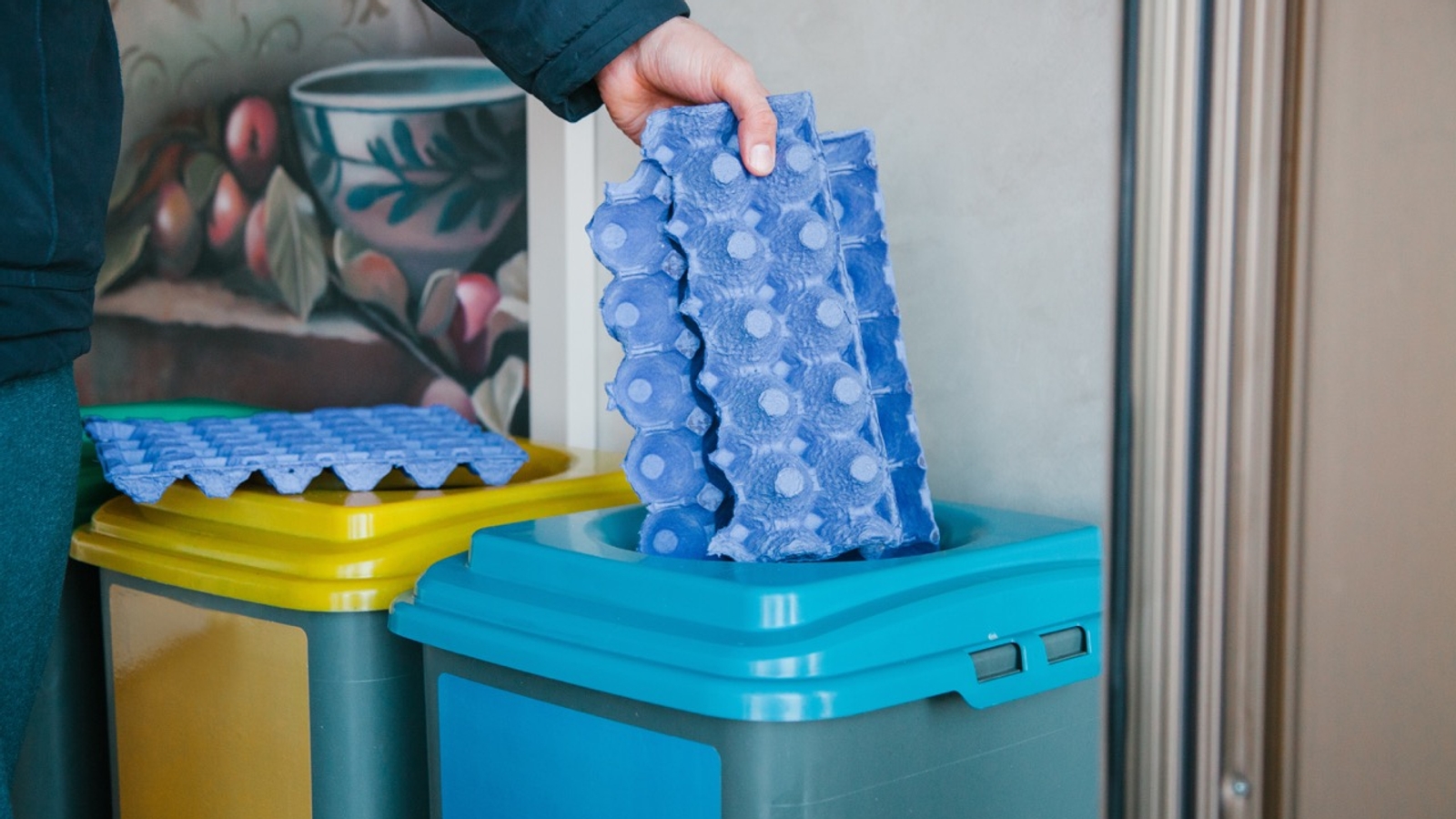
The Issue With Recycling
While recycling is better than sending waste to landfills, there are issues that prevent recycling from being a perfect solution. One major problem is that recycled materials are not always able to be processed as intended. Contamination is one factor that leads to recycling issues. When non-recyclable materials like plastic bags or food waste enter recycling streams, they can degrade the quality and get sorted out as trash. Another problem is that materials may also get collected for recycling but then incinerated or sent to landfills anyway due to lack of buyers, added costs or logistical challenges.
Additionally, not all recycled materials can be remade into products of the same quality. Plastic, for example, gets ‘downcycled’ into lower-grade materials, meaning it can only be reused a finite number of times before ending up in landfills.
Due to these deficiencies, recycling alone cannot close the loop. A more comprehensive circular economy approach is needed. This model aims to eliminate waste and keep materials in use at their highest potential.
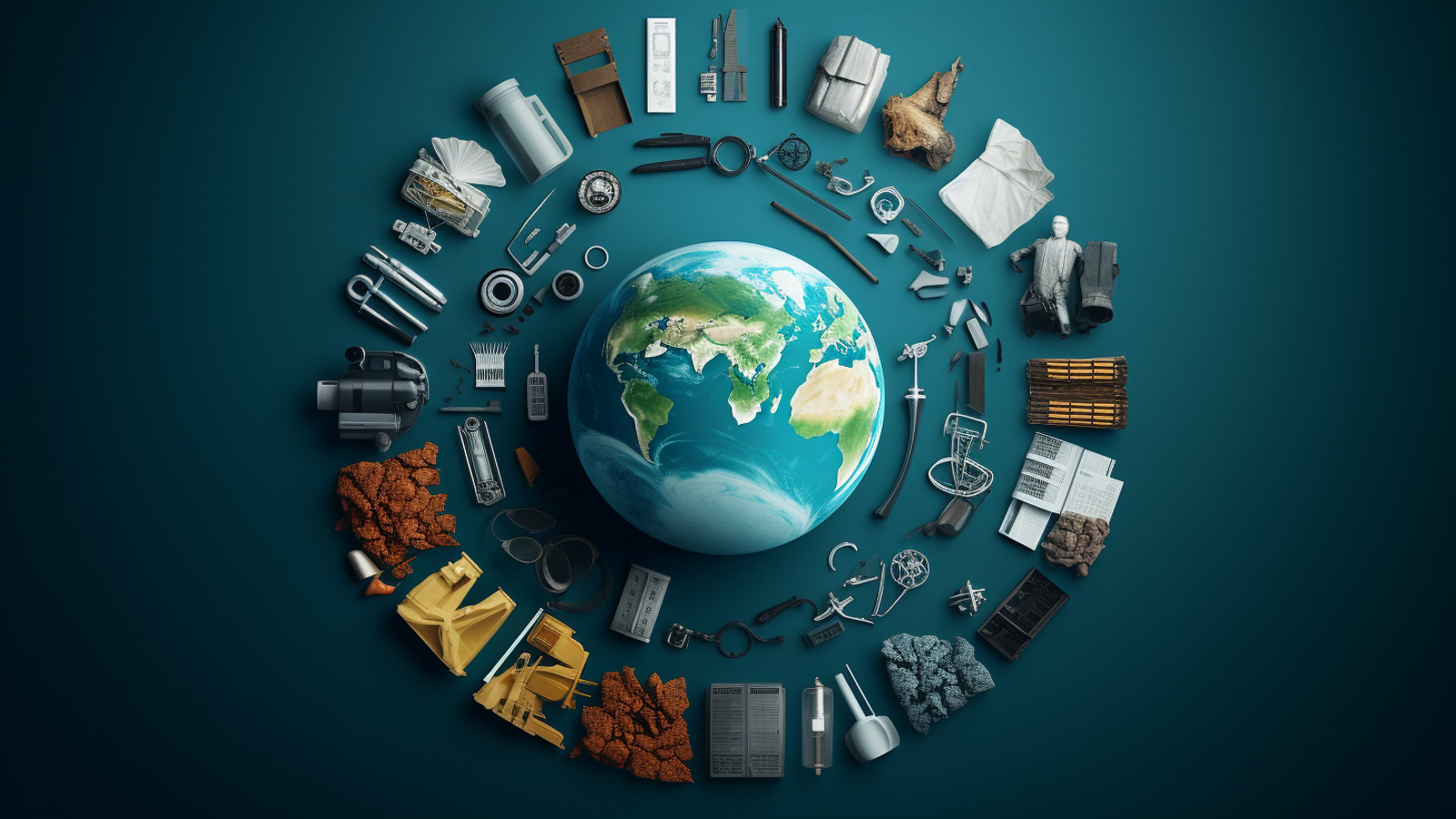
Environmental Benefits Of A Circular Economy
Transitioning to the circular model offers considerable benefits for the environment. Principally it aims to eliminate waste and pollution by keeping materials and products in use. Essentially, circularity is focused on recycling, reusing and repurposing materials to reduce waste and the need for disposal. A circular economy creates cycles of use, redirecting discarded items back into the production process as renewable inputs. This preserves natural resources and reduces the environmental harms of extraction and landfills.
Circular systems also enable better conservation of scarce or hazardous resources like rare earth metals. Products are designed for durability, repairability and disassembly to regain their components. This means you can get the most out of these materials rather than disposing of the prematurely. Maintenance, redistribution, remanufacturing and other recovery processes can further prolong a product’s life span across multiple uses.
Circular activities like recycling generally consume less energy than extraction and production using virgin materials, which lowers greenhouse gas emissions. Recycling products can save as much as 30% energy versus new production.
Overall, the circular economy provides a model for operating within planetary boundaries while meeting our material needs. The rewards for nature are real; cleaner air and water, healthier soils, preserved biodiversity and climate change mitigation.
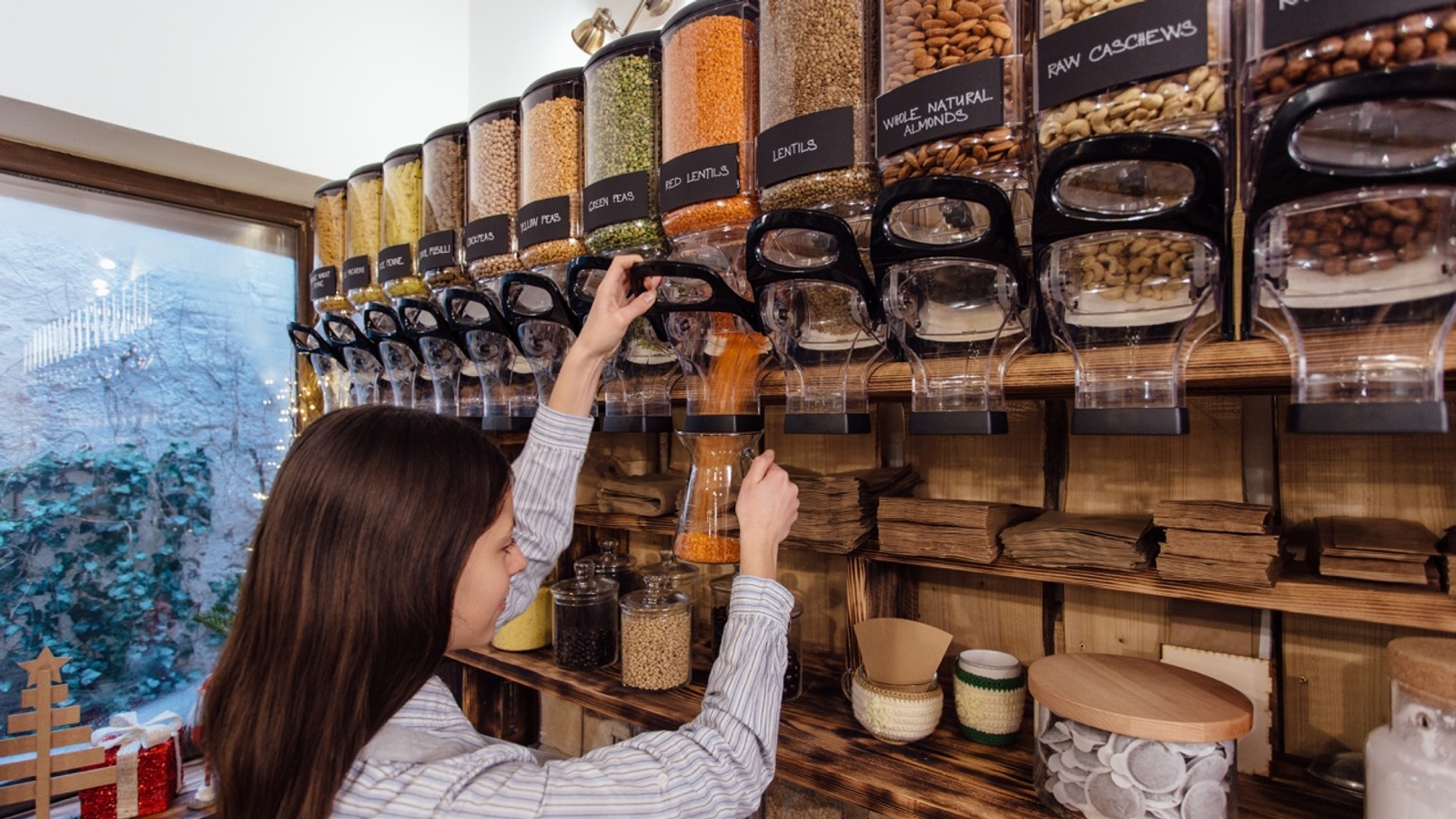
How Businesses Benefit From The Circular Economy
In addition to environmental gains, transitioning to a circular economic model also offers important economic and financial advantages. This system can create jobs in recycling, remanufacturing and other parts of the reuse ecosystem. These activities tend to be local and small-scale, dispersing economic opportunities.
For businesses, circular practices can reduce costs by getting more value out of resources. Recovering and recycling materials cuts down on waste disposal fees, while shared product systems decrease production and inventory costs. Remanufactured goods create profits from renewed older items. Durability and repair also save expenses over frequent replacement purchasing.
The circular economy also drives important innovations that create value. It encourages businesses to develop more sustainable practices, product designs and collaborative consumption platforms that step away from greenwashing practices and add real value. Renewed attention is placed on technology and design aspects like modularity, durability, and disassembly.
How Can We Adopt A Circular Approach?
As consumers
For consumers, a circular mindset means recalibrating how we think about products and materials. Rather than viewing items as disposable, we can opt for quality, durability and repair to maximise utility over time. Before replacing something that breaks, research fix-it options and repair shops.
If a replacement is needed, consider purchasing second-hand, donated or refurbished items which recirculate previously-owned goods. There are plenty of peer-to-peer sharing platforms that can be used to access infrequently used tools, equipment or even vehicles rather than buying new and having them sit idle.
A circular mindset also means evaluating daily choices around single-use plastics and disposables – switch to reusables whenever possible, refuse unnecessary packaging and cutlery, and be meticulous about recycling and composting rather than discarding recyclables.
Finally, shoppers should vote with their money by supporting brands and companies that embrace circular practices like take-back programmes, warranties, recycling and transparency around sustainability.
As businesses
For businesses, the transition requires a fundamental rethinking of operations, products and business models. Products should be designed from the outset for durability, standardisation of parts for repair and the use of safer recyclable materials.
Companies can adopt remanufacturing, refurbishment and repair programmes to extend product life cycles, while offering rental, resale and take-back options to customers.
The opportunities exist to create value and future-proof against resource scarcity, while also boosting brand reputation and closing the loop on linear production models. Monitoring material inputs and outflows using tech helps identify optimisation points to eliminate waste, and also aids transparency and accountability.
Coming Full-Circle
The circular economy offers a hopeful path forward — one where waste is eliminated, resources circulate, and both the economy and environment benefit.
As consumers and businesses, we each play an important role in enabling this transition to a more circular economy. Small actions add up to a big change and the circular economy provides a framework for meeting our material needs while respecting planetary boundaries.
10 Great Circular Brands on Canopey
There are lots of great sustainable brands on Canopey that have circular approaches to how they do business. The easiest way to see if a product is made with circularity in mind is to look for our Reuse & Refill accreditation. This icon means a product is made to be refilled or reused over its lifetime, reducing its overall impact and minimising the waste which might otherwise be created by using single-use options.
We have a variety of reusable and refillable products on Canopey, including coffee cups, cutlery, reusable wipes, and sachets of cleaning products you can mix with water. Many of these products not only reduce your impact but make it easier to save money and stock up, saving space in your cupboard with compact refills which can be much more affordable than the leading brands.
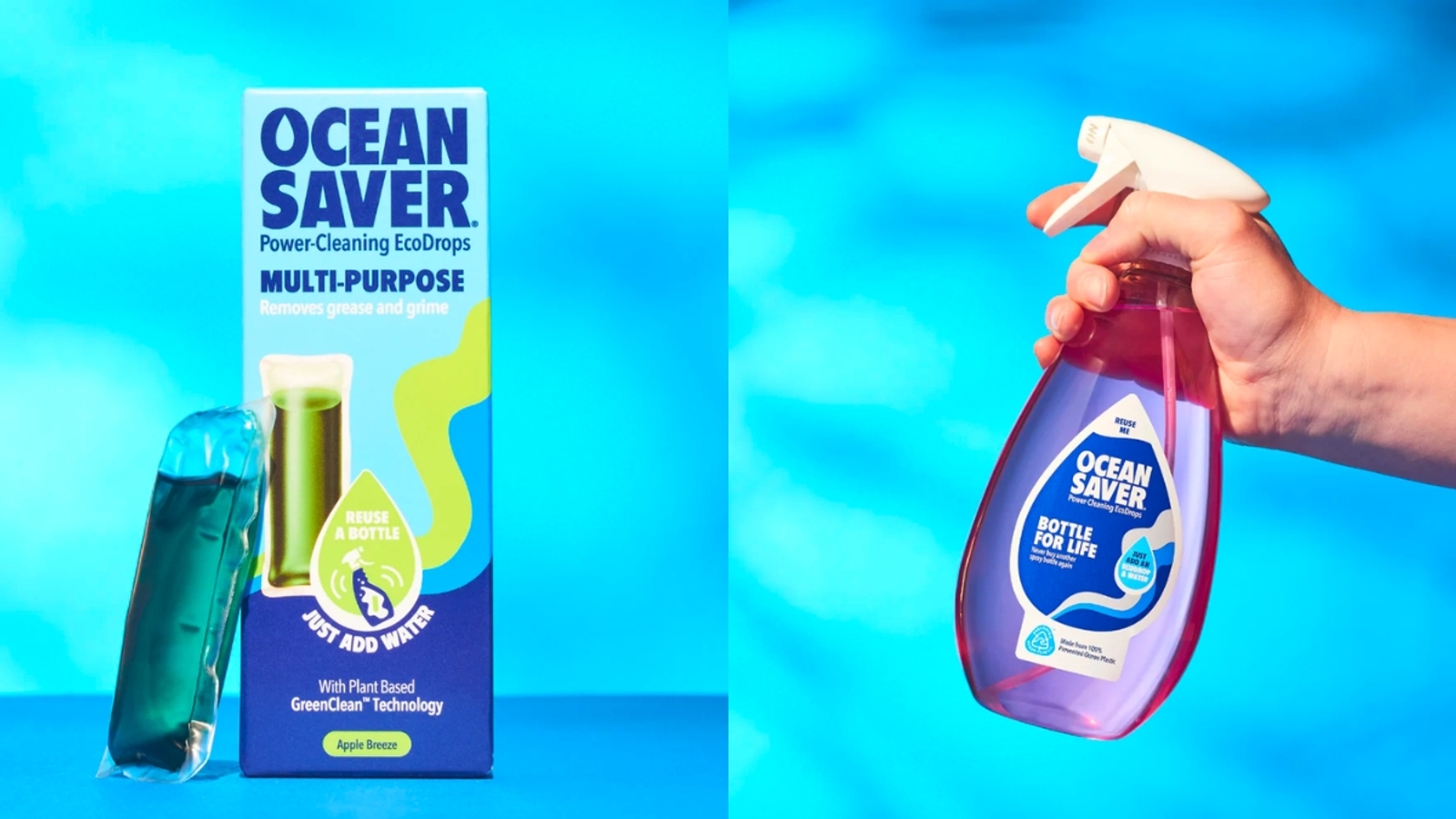
1. Ocean Saver
Oceansaver was created from a deep love of the ocean and concern over single use plastic. Homecare generates more than 29 billion plastic containers each year. At OceanSaver, they have taken a stand and created a solution. Their plant-based, non-toxic EcoDrops transform in water, creating a safe and powerful product to clean your home spotlessly, while you play your part in something vital. Rather than throwing out or recycling plastic spray bottles, you can now easily reuse just one, again and again. Small change. Big impact.
Shop & learn more on OceanSaver's page.
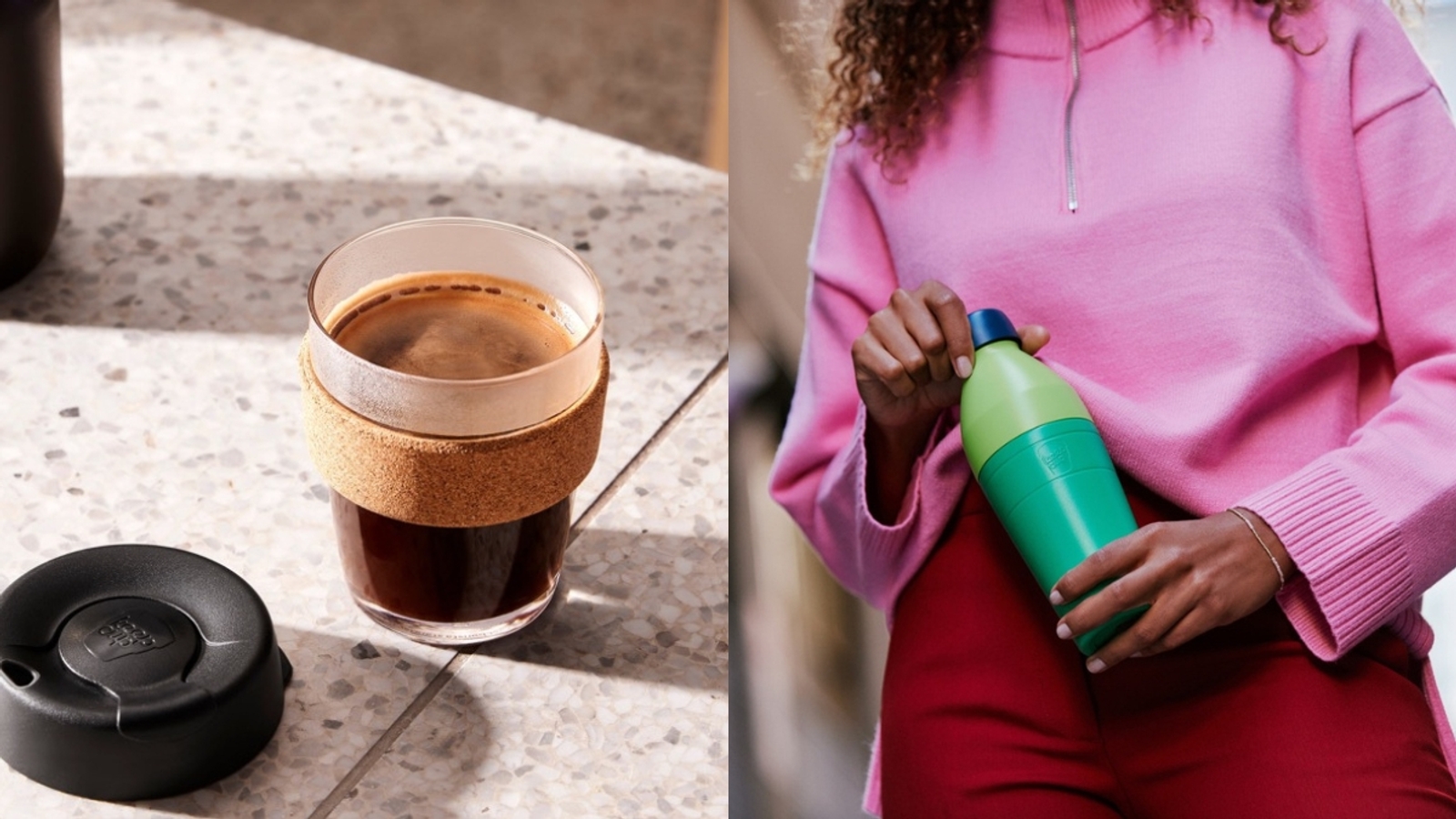
2. KeepCup
It started in a Melbourne cafe with a simple idea: keep it and use it again. When siblings Abigail and Jamie Forsyth started a café business in Melbourne in 1998, disposable cups were entering the public landscape; the signifier of a busy professional life and a vibrant independent coffee scene.
In 2007 they decided to design and manufacture their own – a barista standard reusable cup for people to enjoy better coffee on the go. KeepCups are now used in more than 75 countries around the world and users, or reusers, divert millions of disposable cups from landfill every day. Their actions inspire others to do the same.
Shop & learn more on KeepCup's page.
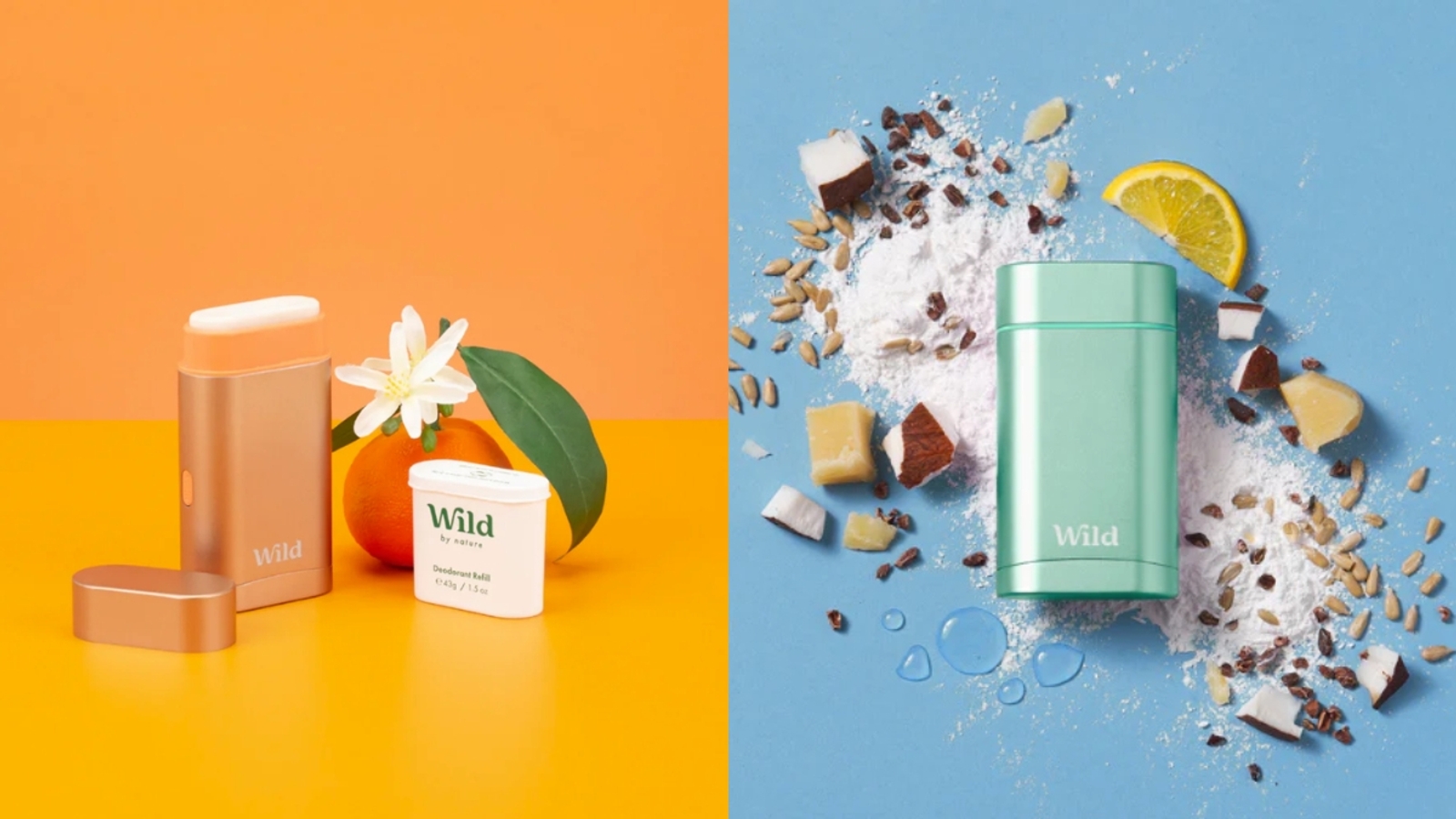
3. Wild
Wild is the UK’s No.1 refillable natural deodorant that’s kind to both your skin and the environment. Millions of bathroom products are thrown away every year and the sustainable and natural alternatives out there don't cut it — until now. Wild is here to shake-up the throwaway culture of bathroom products with refillable high-performing products made from natural ingredients that never compromise on convenience or efficacy.
Shop & learn more on Wild's page.
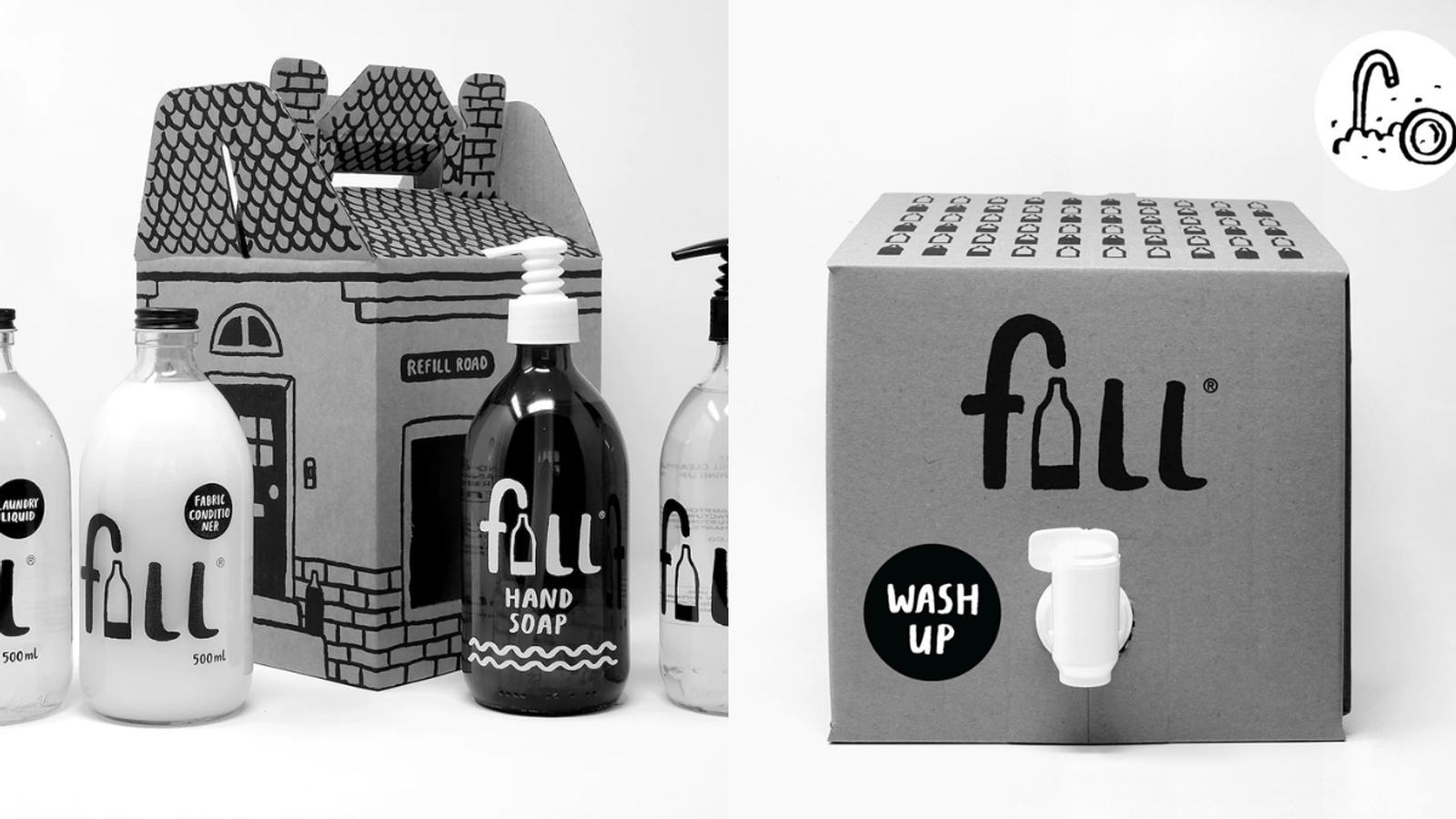
4. Fill Refill
Fill Refill is an independent family run business making responsible, returnable and refillable body, hair, laundry and household cleaning products. Available in returnable bulk & refillable glass bottles, too cool to ever want to throw away. They make everything themselves at their factory in Northamptonshire with real chemists, combining biodegradable ingredients to create simple, modern and effective responsible products.
Shop & learn more on Fill Refill's page.
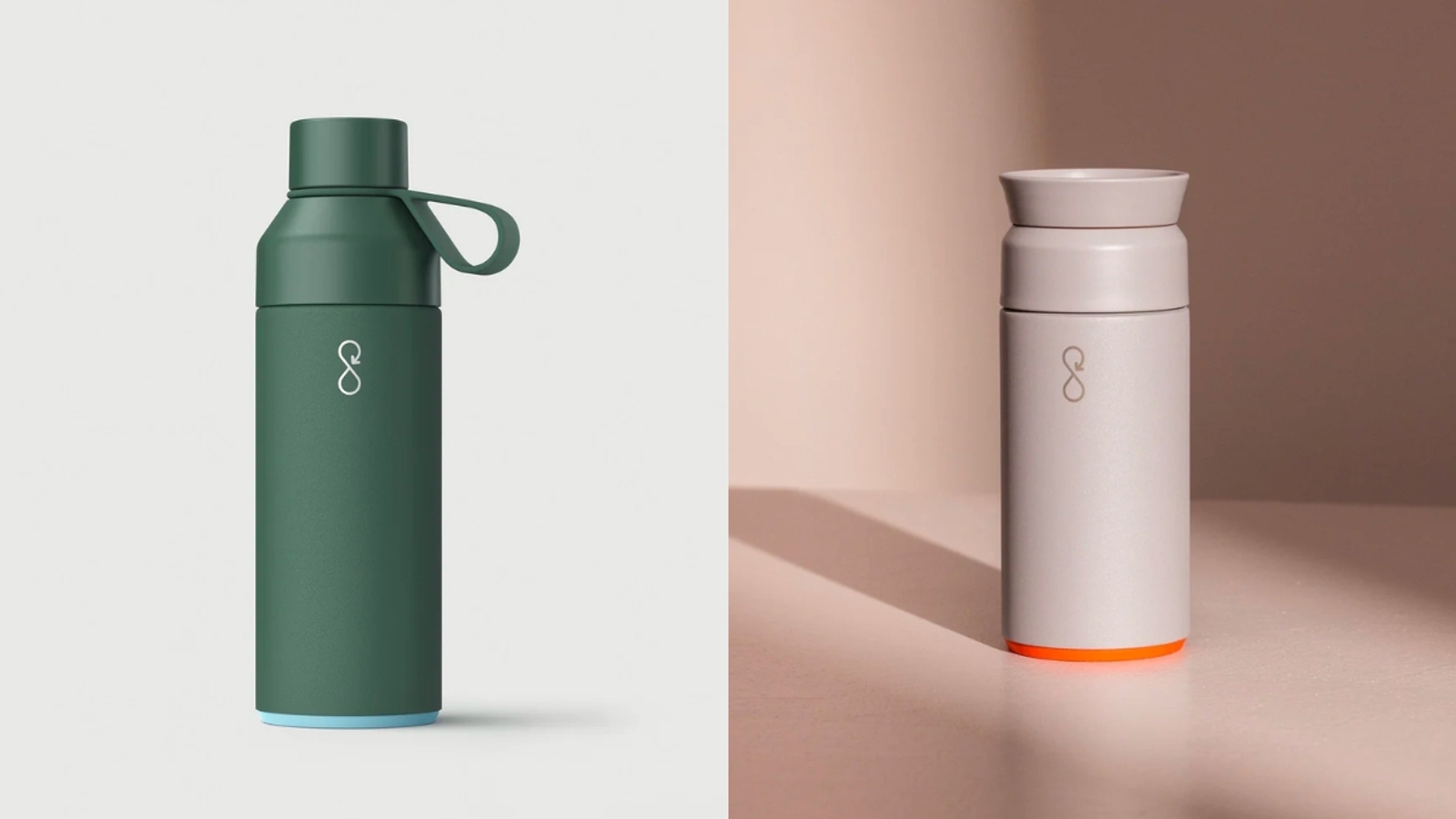
5. Ocean Bottle
Introducing the world’s most needed reusable bottle.Made from double wall vacuum-insulated stainless steel and recycled content, our award-winning bottles keep cold drinks cold, and hot drinks hot. The anti-leak dual opening lid makes filling and cleaning a breeze. Plus, for every bottle sold funds the collection of 11.36 kg of ocean-bound plastic, equivalent to 1000 single use plastic bottles. Good for you, good for the ocean.
Shop & learn more on Ocean Bottle's page.
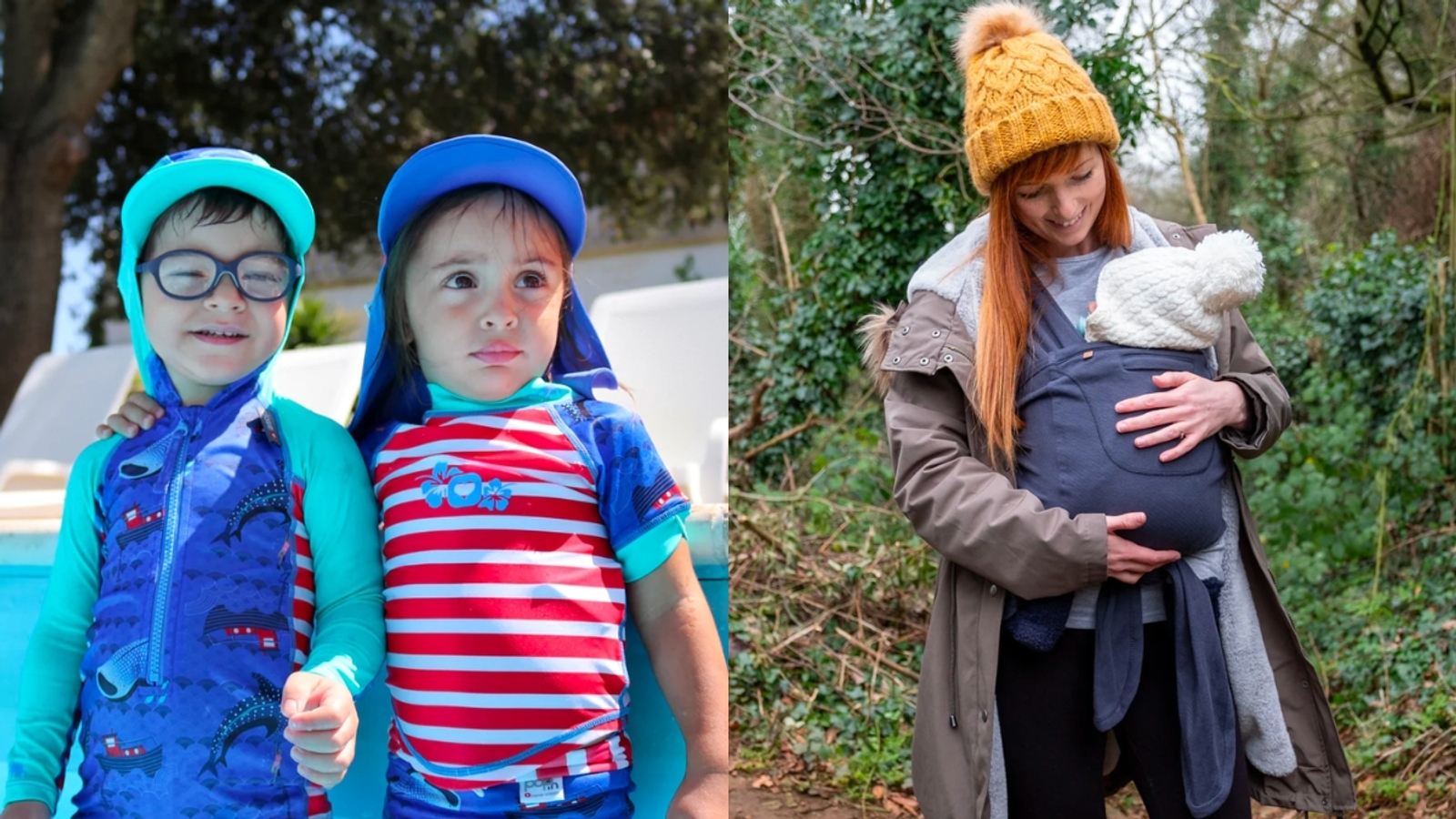
6. Close Parent
Close Parent made it their daily mission to celebrate baby wearing, changing bums and creating simple ideas for mums and dads who share their appreciation for wonderful materials, simple parenting and good ideas. Back in 2004, two mums got together; one with a passion for baby wearing and the other a love of cloth bottoms. Close has since established itself as a great British parenting brand, providing parents with reusable, low-waste options like reusable nappies, towels and more made from recycled materials.
Shop & learn more on Close Parent's page.
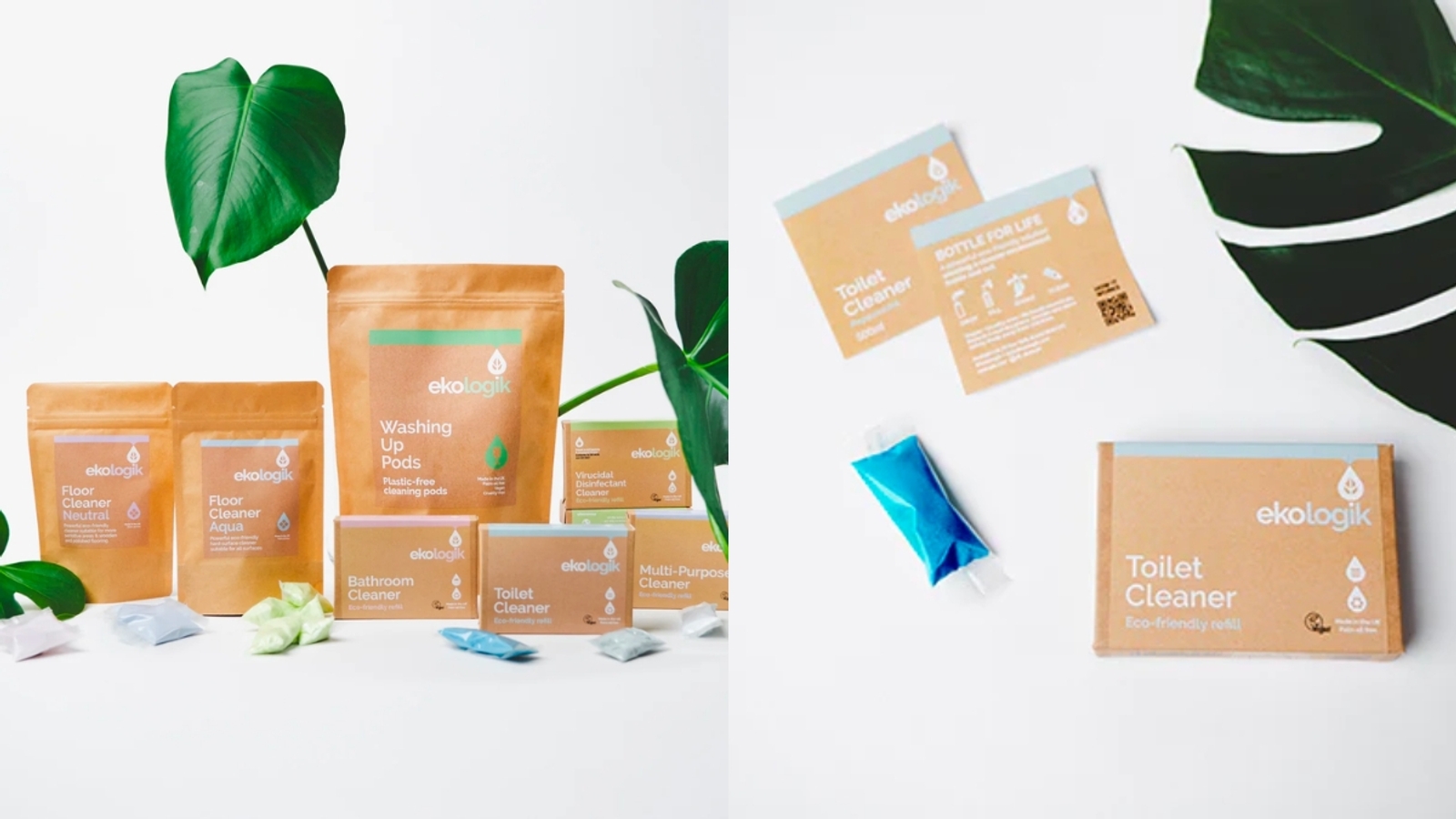
7. ekologik
In 2021 ekologik developed a new range of plastic-free products to help everyone eliminate single-use plastic! Their pods have been referred to as next generation cleaning, containing all the ingredients required to create a powerful cleaning solution. Their refills are a great low-waste and effective alternative to liquid cleaners, which are typically packaged in single-use plastic.
There’s a focus on making products easy to use and affordable, with the aim of leaving no one with an excuse not to make the switch.
Shop & learn more on ekologik's page.
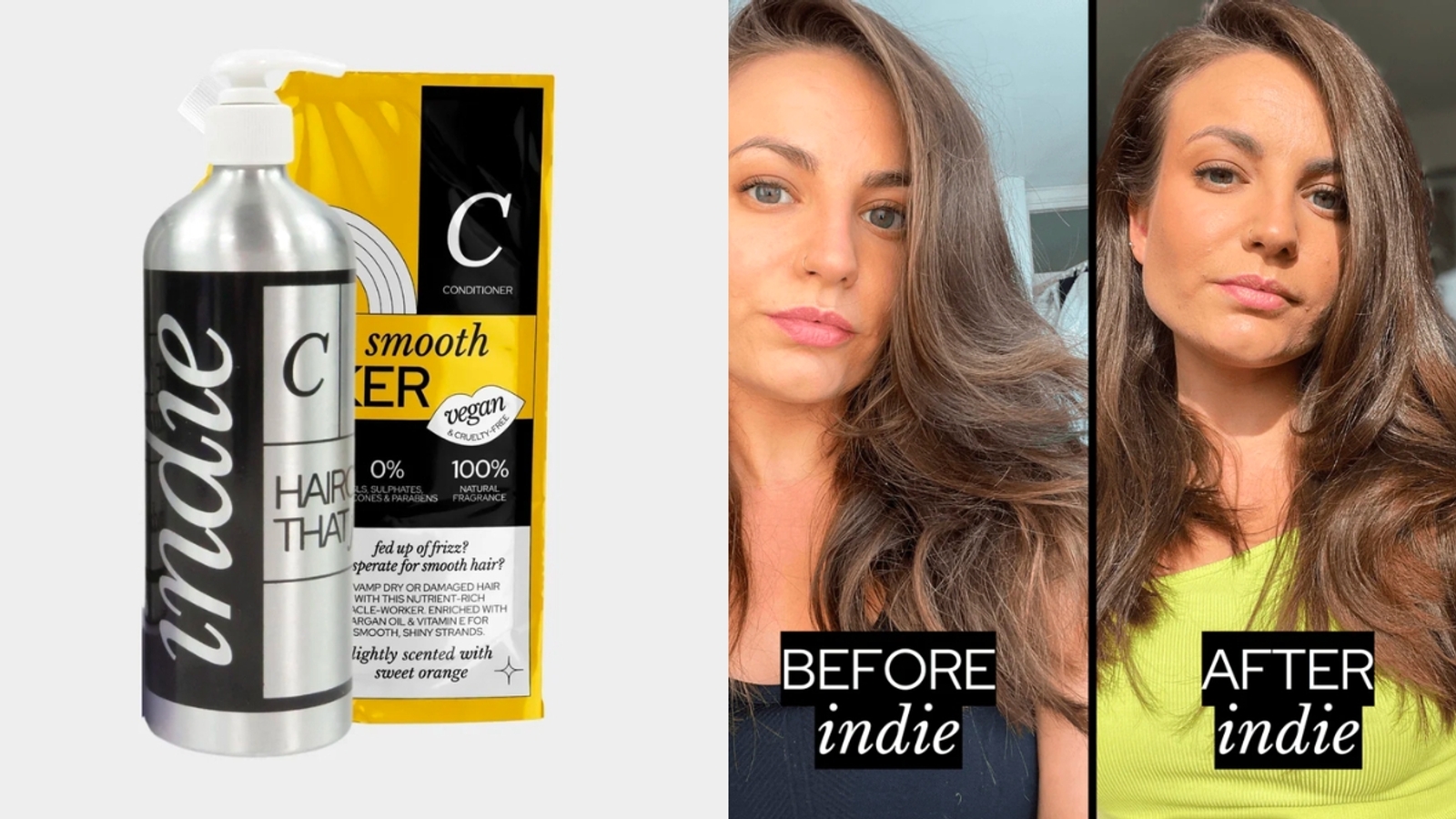
8. Indie Refill
Kiss goodbye to bad hair days with Indie's haircare that f*cking works. Uniquely developed by scientists and customers, this is haircare like never before. Indie’s refills are closed loop, meaning all you need to do is freepost them back to them to ensure proper pouch recycling with Terracycle.
Shop & learn more on Indie Refill's page.
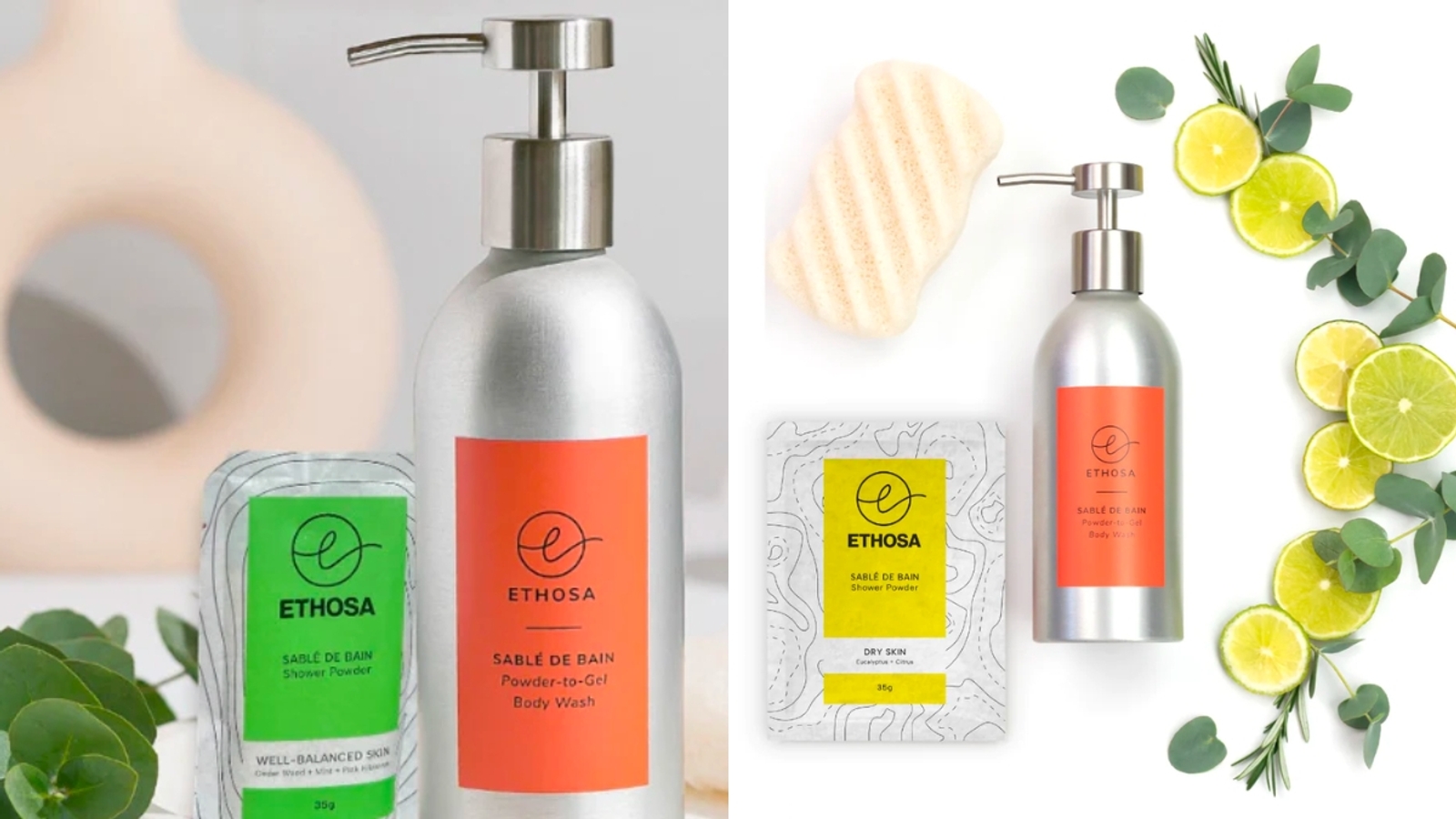
9. ETHOSA
It’s time for the last bottle of shower gel you’ll ever need! Say goodbye to single-use plastic and shipping water, and hello to ETHOSA: a plant-based, refillable shower-gel solution that’ll turn your bathroom into a spa. Using only the fewest potent all-natural ingredients possible, the powder-to-gel formulas are tailored to personal skin needs (and leave you smelling like a damn dream, every day).
Shop & learn more on ETHOSA's page.
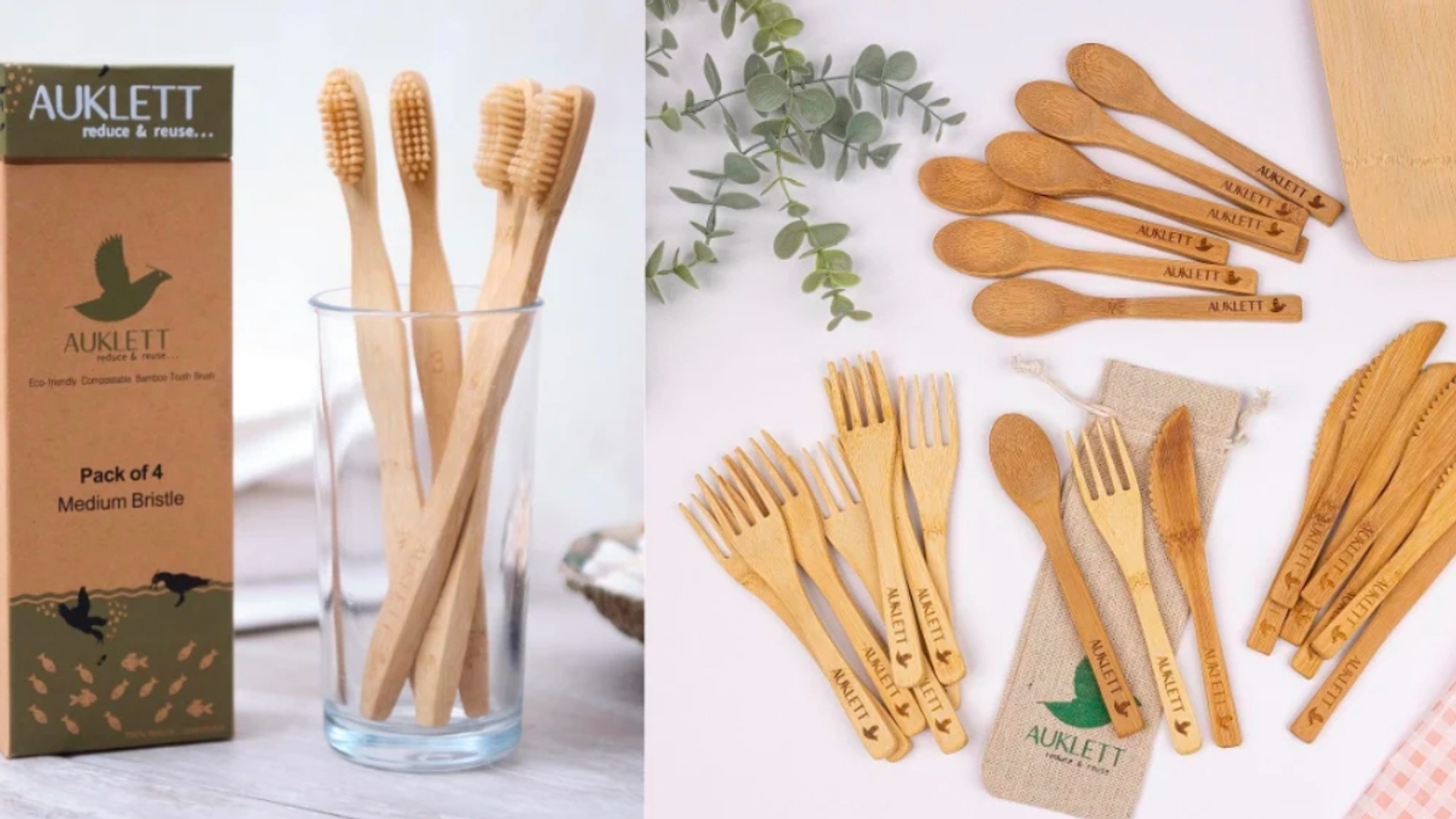
10. Auklett
Auklett firmly believe real change comes from both individual and societal choices, but as a family that still tries to live a plastic-free life every day, they are very aware of how challenging this can be, especially for families and young people. That’s why they’ve decided to use their experience and desire to protect the planet and make it easier for people to find products they can trust are not going to damage the environment.
Shop & learn more on Auklett's page.
About the author
Annie is a freelance writer specialising in sustainable lifestyle and business development.
Having been featured in a variety of eco publications she is passionate about using her writing skills to help others live more eco-friendly lifestyles.
Visit Annie’s website to find out more.



